Han Kang is a name that resonates powerfully in the world of literature, especially among readers who appreciate profound themes and thought-provoking narratives. As an author who masterfully intertwines the personal with the political, Han Kang’s works delve deep into human emotions, societal challenges, and the nuances of identity. In this post, we’ll explore her biography, her most celebrated books, and the remarkable impact she has had on global literature.
Early Life and Background
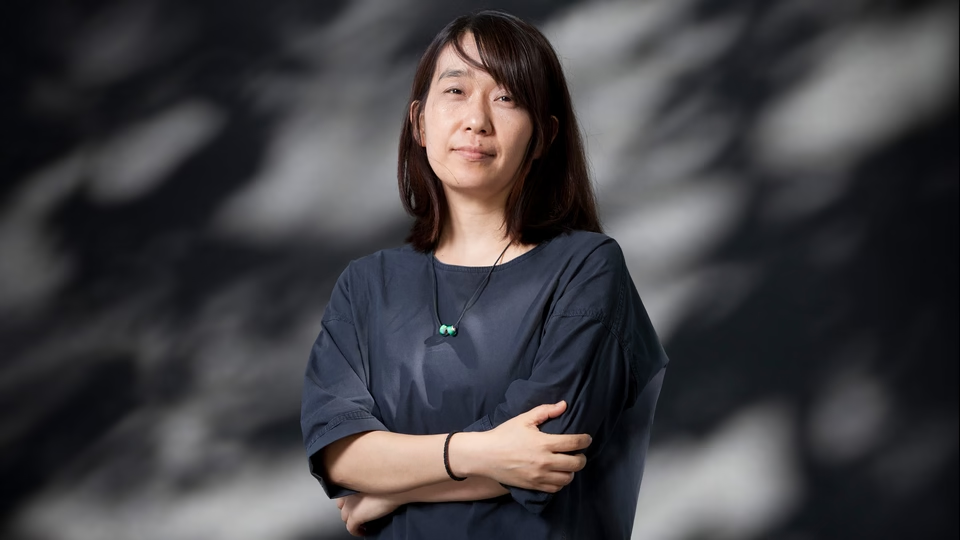
Birthplace and Family Background
Born on November 27, 1970, in Gwangju, South Korea, Han Kang grew up in a family that valued intellectual pursuits. Her father, Han Seung-won, is a well-known novelist, which undoubtedly influenced her path into literature. Although her family relocated to Seoul when she was young, the memories of Gwangju—especially the tragic Gwangju Uprising—deeply shaped her creative outlook.
Education
Han Kang pursued her studies in Korean literature at Yonsei University, one of South Korea’s prestigious institutions. Her academic background provided a foundation for her understanding of literary structure, symbolism, and cultural context. It was during her time at university that she began to envision writing as more than a passion—it was a calling.
Early Inspirations
From a young age, Han Kang was exposed to the arts, literature, and the complexities of human existence through her family and surroundings. Her father’s influence, coupled with her own experiences, nurtured her talent for storytelling. Poetry, philosophy, and art also played significant roles in shaping her voice as an author.
Career Journey
Initial Steps in Writing
Han Kang’s journey as a writer began with poetry, a medium that allowed her to explore themes of identity and existence. In 1993, she made her literary debut with the short story A Love of Yeosu, published in a South Korean literary magazine. Her early works were characterized by introspection and an experimental narrative style.
Breakthrough Moment
Her literary breakthrough came with the publication of The Vegetarian in 2007, a novel that would go on to define her career. This haunting and poetic tale of a woman’s decision to renounce meat—and subsequently, the expectations placed upon her by society—earned her the prestigious Man Booker International Prize in 2016.
Writing Style and Themes
Han Kang is celebrated for her sparse yet evocative prose. Her writing often explores themes of human suffering, memory, identity, and the fragility of existence. Whether delving into historical trauma or personal alienation, her works invite readers to confront uncomfortable truths about humanity.
Han Kang Famous Novels
1. The Vegetarian
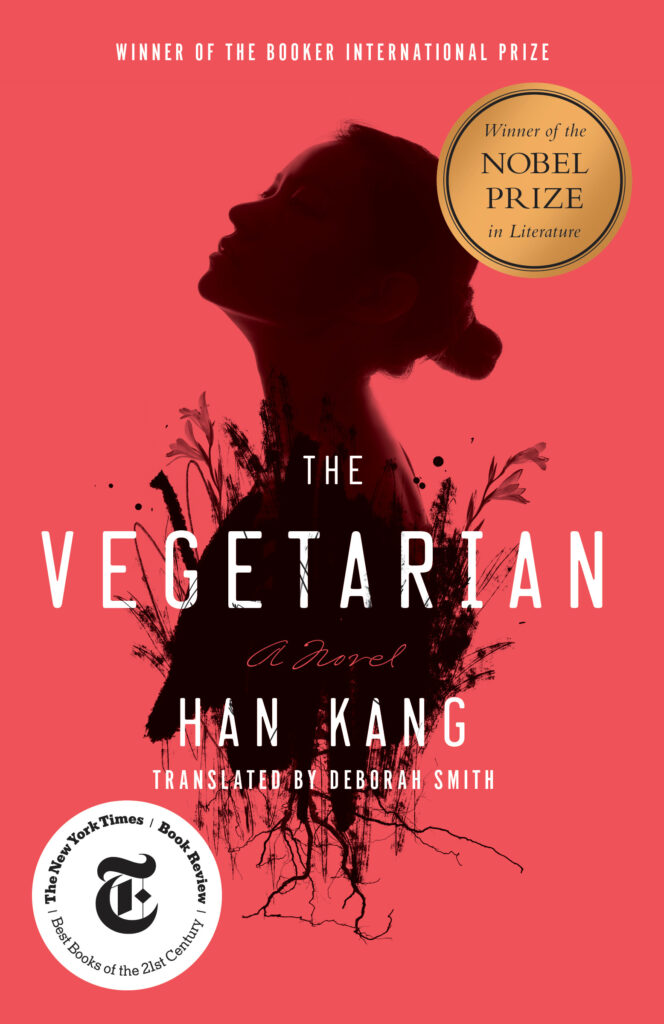
The Vegetarian is arguably Han Kang’s most renowned work. This novel tells the story of Yeong-hye, a woman whose decision to stop eating meat spirals into a series of events that challenge societal norms and familial expectations. The book is divided into three parts, each narrated by a different character, offering a multifaceted view of Yeong-hye’s transformation. Critics have praised the novel for its exploration of bodily autonomy, repression, and rebellion.
2. Human Acts
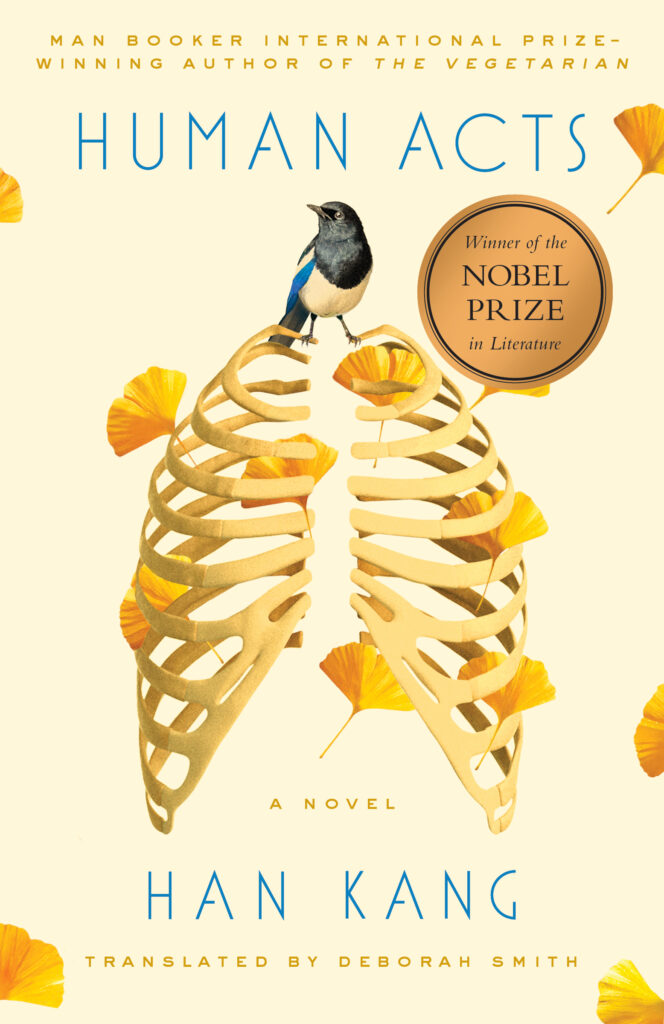
Set against the backdrop of the Gwangju Uprising of 1980, Human Acts is a harrowing account of violence, grief, and the resilience of the human spirit. The novel weaves together multiple perspectives, each offering a glimpse into the lives forever altered by the massacre. Through this work, Han Kang confronts the pain of collective memory while honoring those who lost their lives.
3. The White Book
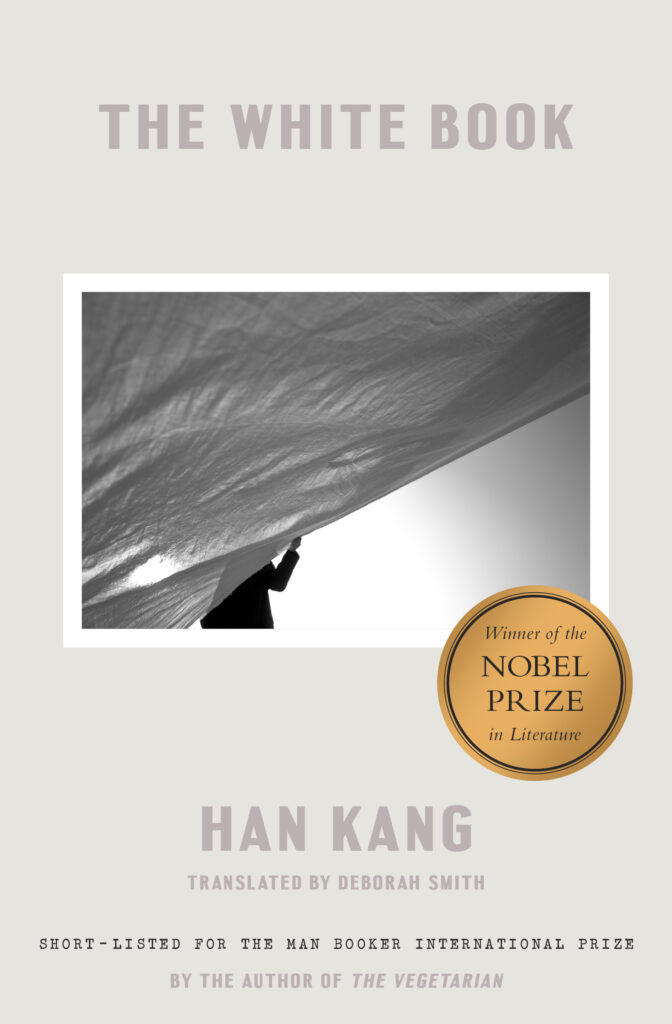
The White Book is profoundly introspective and poetic work. Structured as a series of meditations on the color white, the book explores themes of loss, grief, and the ephemeral nature of life. It stands apart from her other novels for its experimental style, blending prose with poetry to create an emotionally resonant experience.
4. Greek Lessons
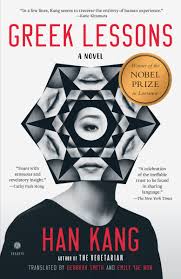
Greek Lessons by Han Kang is a deeply introspective novel that examines themes of silence, loss, and human connection. The story centers on two characters: a woman who has lost her ability to speak due to personal trauma and a Greek language teacher who is slowly losing his sight. Their lives intersect in a Greek language class, where their shared vulnerabilities create an unspoken bond.
Nobel Prize & Global Recognition
Nobel Prize in Literature (2024)
In October 2024, Han Kang won the Nobel Prize in Literature, becoming the first South Korean author and the first Asian woman to receive this prestigious honor. The Nobel committee recognized her for her “intense poetic prose that confronts historical traumas and exposes the fragility of human life.” This accolade celebrates her profound contributions to literature and her ability to shed light on complex human experiences through evocative storytelling.
This historic win solidified Han Kang’s position as a global literary icon and brought further attention to the richness of Korean literature. Her acclaimed novel The Vegetarian, which won the Man Booker International Prize in 2016, was a significant factor in her recognition. The committee also praised works like Human Acts and The White Book for their poignant exploration of human resilience and grief.
Translations and Global Reach
Her works have been translated into over 20 languages, enabling readers worldwide to connect with her stories. This global reach has not only elevated her status but has also brought Korean literature to the forefront of the international stage.
Adaptations and Media Presence
Several of Han Kang’s works have been adapted into plays and artistic performances, further testament to their impact. Her presence in international literary festivals and interviews has also cemented her role as a voice of modern literature.
Han Kang’s Impact on Literature
Han Kang has played a pivotal role in bringing Korean literature to global audiences. Her works highlight the rich cultural and historical tapestry of South Korea while addressing universal themes.
Readers and critics alike admire Han Kang for her ability to balance beauty and brutality in her narratives. Her works are often described as transformative, challenging, and deeply moving.
As a writer, Han Kang continues to inspire both her contemporaries and emerging writers. Her ongoing projects promise to further expand the horizons of literary exploration.
Exploring Han Kang’s Philosophy
Han Kang’s interviews and essays reveal a deep concern for societal issues, such as gender inequality, political oppression, and environmental degradation. These themes are often interwoven into her literary works.
Feminism is a recurring motif in Han Kang’s writing. Her portrayal of female protagonists navigating oppressive societal structures reflects her advocacy for women’s rights and autonomy.
How to Start Reading Han Kang’s Books
For those new to Han Kang’s works, starting with The Vegetarian is ideal, as it offers a glimpse into her narrative style and thematic depth. Following up with Human Acts and The White Book provides a well-rounded understanding of her oeuvre.
Han Kang’s books stand out for their poetic language, emotional intensity, and fearless exploration of difficult topics. Her ability to evoke profound emotions makes her a unique voice in modern literature.
Conclusion
Han Kang’s literary journey is a testament to the power of storytelling to bridge cultures and evoke deep introspection. From The Vegetarian to The White Book, her works continue to impress readers worldwide.
Have you read any of her books? Share your thoughts in the comments below!
